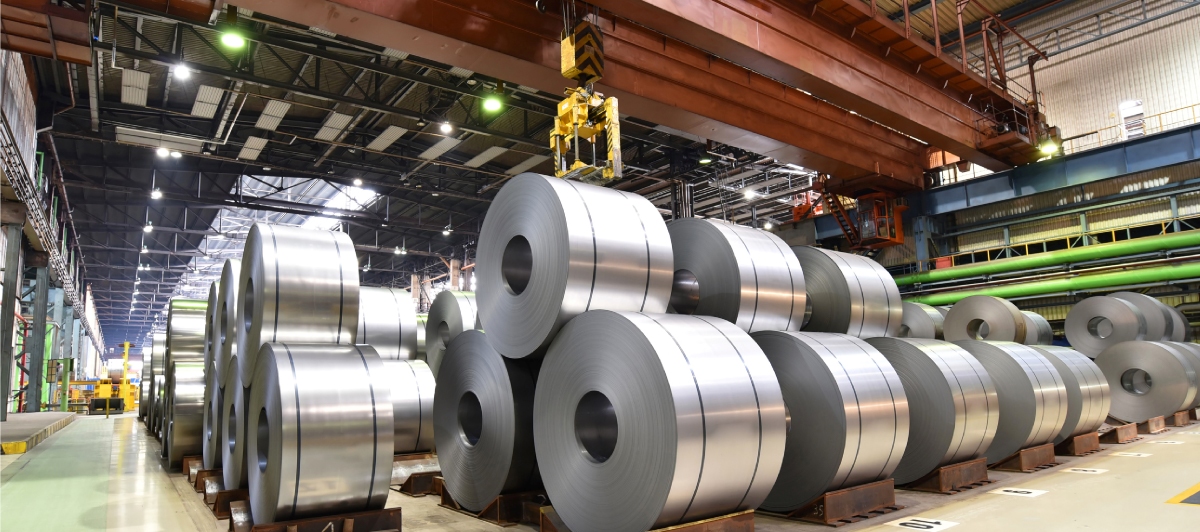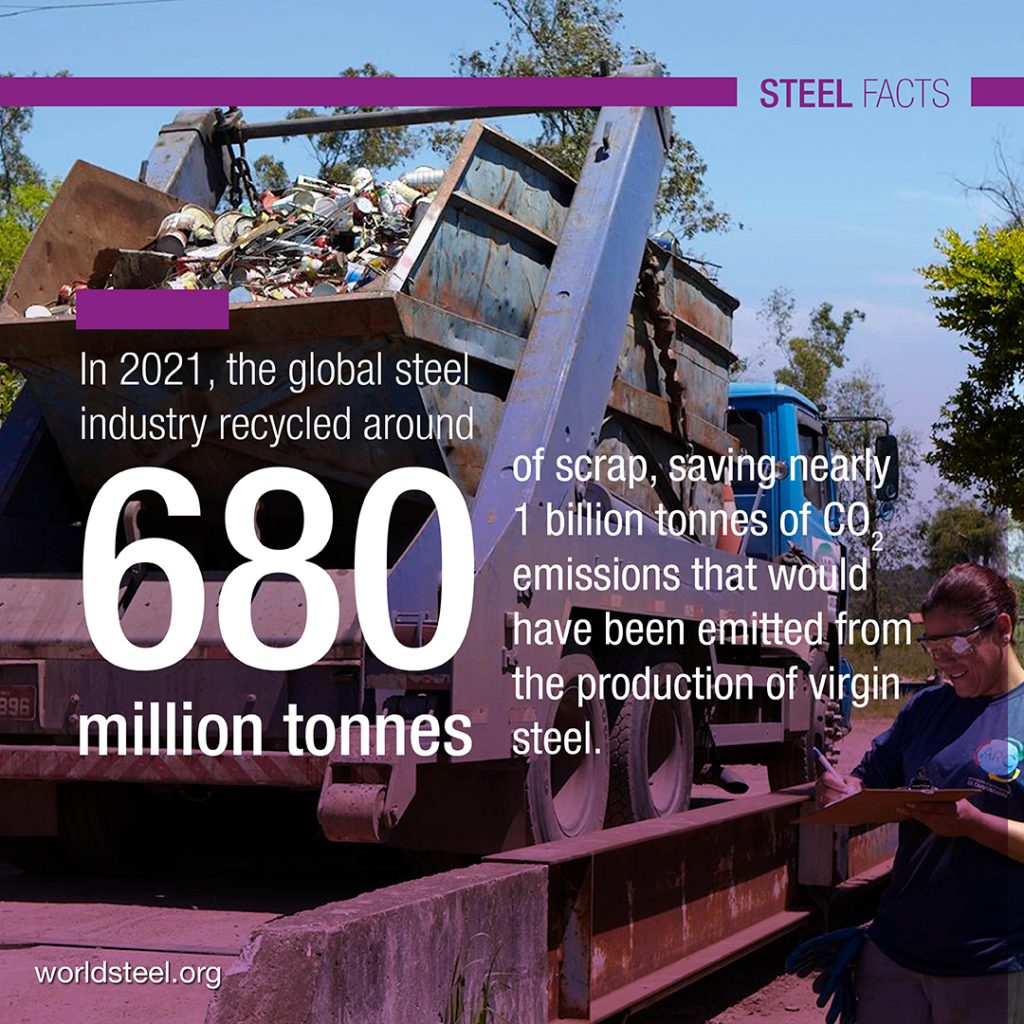Why Recycling Stainless Steel Matters

Date

Source: www.worldsteel.org
Stainless steel is everywhere – from our kitchen appliances and cutlery to the gleaming skyscrapers of our cities. This versatile and durable material has become an integral part of modern life, offering strength, corrosion resistance, and an aesthetic appeal that never seems to fade. However, its popularity comes at a cost to the environment, making recycling stainless steel more critical than ever.
Producing Stainless Steel
Stainless steel is composed of iron, chromium, nickel, and other elements. What makes it unique is its resistance to corrosion and staining, a property achieved through the addition of chromium. This characteristic makes it ideal for various applications where exposure to moisture or harsh conditions is common, from kitchen utensils to industrial equipment.
While stainless steel boasts remarkable durability and longevity, the production of new stainless steel can be resource-intensive and energy-consuming. It involves mining iron ore, refining it into steel, and then alloying it with chromium and other elements. This process emits greenhouse gases and consumes significant amounts of energy.
The Recyclability Factor
The good news is that stainless steel is one of the most recycled materials globally, and this is where its environmental benefits truly shine. Recycling stainless steel significantly reduces the need for virgin material production, conserving resources and energy.
Reasons Why Recycling Stainless Steel Matters
-Resource Conservation: Stainless steel recycling minimizes the need for raw materials, including iron ore and chromium. This helps to protect natural ecosystems and reduces the environmental impact of mining and ore processing.
-Energy Efficiency: Producing stainless steel from recycled materials requires considerably less energy compared to making it from scratch. This reduction in energy consumption translates to fewer greenhouse gas emissions and a smaller carbon footprint.
-Longevity: Stainless steel products can last for decades, but even when they reach the end of their useful life, they can be recycled repeatedly without losing their essential properties. This extends the lifespan of the material and reduces waste.
-Cost-Effective: Recycling stainless steel can also be economically beneficial. The market for recycled stainless steel is robust, making it an attractive option for businesses and individuals looking to reduce costs and support sustainability.
-Reducing Landfill Waste: By recycling stainless steel, we divert valuable materials away from landfills, reducing the pressure on waste disposal systems and conserving landfill space.
Recycling stainless steel isn’t just about protecting the environment; it’s a smart choice that aligns with our evolving understanding of sustainability. By choosing to recycle stainless steel, we conserve valuable resources, reduce energy consumption, and contribute to a more circular and eco-friendly economy. It’s a small yet impactful step toward a greener future where stainless steel continues to be a shining example of human ingenuity and environmental responsibility. So, the next time you see a stainless steel item ready for disposal, remember that it’s not just scrap; it’s a valuable resource waiting to be transformed once again.
Visit our Stainless Steel page to learn more about the services we offer for stainless steel recycling at D Block Metals.



